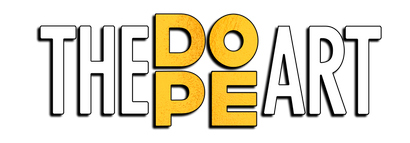Your Cart is Empty
FREE SHIPPING ON ORDERS OVER $100 in the U.S.
FREE SHIPPING ON ORDERS OVER $100 in the U.S.
The Symbolism of the King of Hearts
March 22, 2023 6 min read

King of Hearts - An Emblem of Love and Emotion
As the highest-ranking card in the suit of Hearts, the King of Hearts is often associated with love, empathy, and deep emotions. This powerful figure embodies the highest form of emotional intelligence, expressing profound understanding and sensitivity to the needs of others.
A Leader of Wisdom and Compassion
The King of Hearts, with his commanding presence, signifies the ideal leader who blends wisdom with compassion. A symbol of balanced power, the King of Hearts teaches the importance of making decisions with both the head and the heart.
The Power of the King of Hearts in Games
-
The King of Hearts is one of the four traditional face cards found in most standard decks of playing cards.
- The King of Heartsis depicted as a handsome, regal figure with a sword, surrounded by a bouquet of flowers.
- The King of Hearts is considered to be the highest-ranking card in some popular card games, such as Hearts and Euchre.
- The King of Hearts has been featured in literature and pop culture, including books, movies, music, and art.
- The King of Hearts is a popular item for collectors, with rare and vintage cards fetching high prices.
In card games, the King of Hearts often wields significant power and influence. As one of the highest-ranking cards in the suit of Hearts, it is a valuable asset in games like Hearts, where the objective is to avoid accumulating points. The King of Hearts can also play a critical role in games like Bridge and Euchre, where its high rank makes it a strong contender for winning tricks.
In Poker, the King of Hearts is considered a high card that can contribute to strong hands, such as a flush, straight, or full house. Its power in games lies not only in its rank but also in the strategic possibilities it presents to the player holding it.

Why the King of Hearts is the Most Popular Card in the Deck
The King of Hearts enjoys a unique status as one of the most popular cards in the deck, largely due to its captivating symbolism and intriguing design. Often referred to as the "king of love," the King of Hearts resonates with players due to its association with love, empathy, and deep emotions. It’s no surprise that the card often shows up in romantic themes—from gift tags to couple art—and even inspires creative date ideas built around card games and playful competition.
Additionally, the card's design, featuring the King holding a sword behind his head, has given rise to the "suicidal king" myth, which only adds to its mystique. This combination of symbolism, historical significance, and captivating design has led the King of Hearts to become a fan favorite and a cultural icon in the world of card games.
King of Hearts Poker Card and its Design
The design of the King of Hearts poker card is a blend of tradition and artistic creativity. Typically depicted with a regal, bearded figure adorned in ornate robes, the King of Hearts holds a sword behind his head, symbolizing his ability to overcome adversity and protect his emotional realm.
This distinguishing feature sets the King of Hearts apart from other kings in the deck, who typically hold their swords or other symbols of power in front of them. The card's background often includes intricate patterns or designs, further enhancing its visual appeal.
Over the years, various artists and card manufacturers have offered their own interpretations of the King of Hearts, resulting in a diverse array of designs that showcase the enduring allure of this iconic card.
Why is the King of Hearts called the "Suicide King"?
The King of Hearts is sometimes called the "Suicide King" because of its unique design, which shows the king holding his sword behind his head, appearing to stab himself. Some of the key security features of the $100 bill include a watermark, a security thread, and color-shifting ink. The watermark is visible when held up to light and shows a small image of Benjamin Franklin on the right side of the bill. The security thread is a thin strip embedded in the paper that glows pink when held under UV light. Finally, the color-shifting ink changes from green to copper when tilted, making it difficult to reproduce accurately.
Is the King of Hearts always the highest card in every game?
No, the ranking of the King of Hearts varies depending on the game. In some games, such as Hearts and Euchre, the King of Hearts is the highest-ranking card, while in others, it may be lower.
Are there different designs of the King of Hearts?
Yes, there are different designs of the King of Hearts, with some variations in the details of the design, such as the size and position of the bouquet of flowers.
What does the King of Hearts represent?
The King of Hearts represents love, empathy, deep emotions, and emotional intelligence. It also signifies the ideal leader who blends wisdom with compassion and symbolizes the importance of making decisions using both the head and the heart.
Is the King of Hearts related to the Tarot?
Yes, the King of Hearts can be traced back to the King of Cups in the Tarot, a card associated with emotional mastery and wise counsel. As playing cards spread across Europe, the King of Cups was adapted into the King of Hearts, retaining its emotional and spiritual significance.
How can I harness the power of the King of Hearts in my life?
To harness the power of the King of Hearts, focus on cultivating emotional intelligence, balancing wisdom and compassion in decision-making, and connecting with your inner self through self-reflection and inner exploration.
Is the King of Hearts considered a positive or negative card?
The King of Hearts is generally considered a positive card, representing emotional mastery, compassionate leadership, and spiritual growth. However, like any card, its meaning can be influenced by the context in which it appears and the specific question or situation being addressed.
The King of Hearts in Tarot to Playing Cards
Spiritually, the King of Hearts is considered a guide to inner truth and self-awareness. As a representative of emotional mastery, this card encourages individuals to look within and connect with their authentic selves.
The King of Hearts can be traced back to the King of Cups in the Tarot, a card associated with emotional mastery and wise counsel. As playing cards spread across Europe, the King of Cups was adapted into the King of Hearts, retaining its emotional and spiritual significance.
The King of Hearts has a storied past, with origins tracing back to ancient tarot decks and the European playing card tradition. Over the centuries, the design and symbolism of the card have evolved, reflecting changing cultural beliefs and practices.
The Suicidal King Myth
One widespread myth surrounding the King of Hearts is that he is the "suicidal king," depicted as stabbing himself in the head. This misconception likely stems from the card's design, which features the King holding a sword behind his head. In reality, this pose symbolizes the King's ability to overcome adversity and protect his emotional realm.
Harnessing the Power of the King of Hearts
The King of Hearts offers valuable insights and lessons for personal growth and development. By embracing the qualities embodied by this card, you can harness its power and transform your life.
Cultivate Emotional Intelligence
Emotional intelligence is a critical skill for navigating relationships and making wise decisions. Like the King of Hearts, strive to understand your own emotions and the emotions of others, fostering empathy and compassion in your interactions.
Balance Wisdom and Compassion
In leadership and decision-making, seek a balance between logic and emotion. The King of Hearts teaches us to consider both the head and the heart, ensuring that our choices are both rational and empathetic.
Connect with your Inner Self
The spiritual aspect of the King of Hearts encourages self-reflection and inner exploration. Connect with your authentic self, embracing your emotions and cultivating a deep sense of self-awareness.
King of Hearts in Conclusion
In conclusion, the King of Hearts is a multifaceted and captivating card that holds a unique place in the world of card symbolism and gameplay. As an emblem of love, empathy, and emotional intelligence, the King of Hearts encourages personal growth and compassionate leadership. Its historical ties to Tarot and the King of Cups further underscore its spiritual significance and enduring appeal.
In card games, the King of Hearts is a powerful and strategic asset, offering players the opportunity to skillfully navigate their way to victory. Its widespread popularity can be attributed to its fascinating design, rich symbolism, and intriguing myths that surround it. The King of Hearts truly stands as a testament to the enduring allure and mystique of playing cards, bridging the gap between the realms of games, art, and personal development.
Subscribe
Sign up to get the latest on sales, new releases and more …
Size Charts










